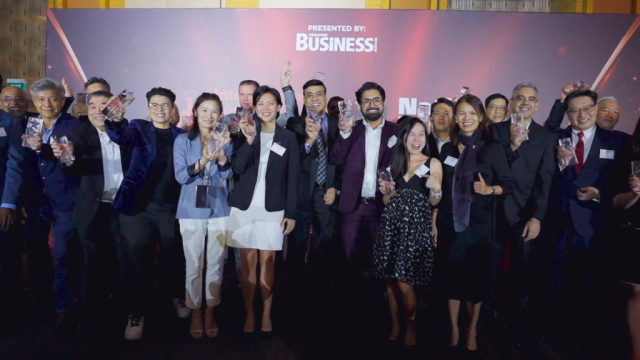
Now what Singapore?
Predicting the future can be a notoriously tricky business. Things that people declare with certainty will happen often don’t, while things that no one saw coming have a horrible habit of actually happening.
The future today is not tomorrow. A look back only twenty years ago demonstrates this perfectly. In 1990, South Africa was still afflicted by apartheid; the USSR was still around; the internet was an academic’s play-thing; and the idea of F1 cars racing at 300kph through the streets of downtown Singapore was laughable.
Predicting the future means challenging some of the basic assumptions of the present. This is precisely what ACCA (the Association of Chartered Certified Accountants) has tried to do with our latest paper, ‘Where next for the global economy: A view of the world in 2030’. The report collates the opinions of fifteen global experts, including CNN’s John Defterios, KPMG’s global head of tax Loughlin Hickey, the World Bank’s Tony Hegarty, and PwC Malaysia’s MD, Chin Kwai Fatt.
As country head of ACCA Singapore, what interests me personally is how this future will affect Singapore and our members. So, what will the world look like in twenty years time and what will this mean for Singapore?
The World and Singapore in 2030
The world in 2030 will have a flatter distribution of global power.
We’re already seeing this process take place with the G7 becoming the G8, and most recently with the G20 coming to the fore. By 2030, a reduction or even removal of trade barriers and the wider dispersion of influence will see regional competition and suspicion be replaced by a genuine desire amongst countries to work together. The ‘East’ and emerging markets will no longer be spoken of as ‘the next big thing’. We will be the big thing.
PwC’s Chin Kwai Fatt predicted that “if the resulting landscape is such that… emerging economies will have a greater role there will be a higher degree of mutual dependence – to the extent that we will not just be relying on the US domestic market. Hopefully emerging economies will create new market ‘clusters’ which, in turn, will promote two-way economic potential between the US and other trading nations. It will therefore become a two-way flow, rather than a parallel universe, where good are shipped to the US while capital is shifted to the East.”
Singapore, early on, had realized its role in the Asian landscape, and has effectively invested in developing symbiotic relationships with China, India and with the rest of her neighbours. As other countries provide potential for investments and market growth, Singapore provides expertise and knowledge. Using this win-win approach, Singapore is poised to ride the next growth curve in the Asian market.
The world in 2030 will be in the midst of an eco-crunch.
While countries may well see the world’s wealth as shared, there will be serious tensions over the dwindling supply of natural resources. Oil may be one of the world’s biggest commodities today, but in 2030 it will be fresh-water. Declining resources will be put under pressure by a global population heading towards 9 billion by 2050 according to UN predictions. This will mean sustainability issues are no longer in business or government silos, but will be a burning issue for every stakeholder in the global economy.
Singapore may not contribute to global climate change on the same scale as China or the US, but it will be hit disproportionately harder. As a small island with few natural resources to call its own, Singapore will undergo rapid diversification of their export commodities toward high value-added services such as information technology and communication based services, financial services, and educational services.
The world in 2030 will be a world of shopkeepers.
The ‘corporate ecosystem’ will be more diverse and far more complex. Increasingly virtual ties will connect increasingly specialist and remote businesses, located in increasingly specialised regions and cities. Small businesses will act like shoals of fish, becoming a strong global force in the global environment. The corporations of 2030 will be an amalgam of specialist businesses, connected through looser agreements and employing a more intuitive form of outsourcing. Today’s biggest companies will de-conglomerate, outsourcing almost all central functions to achieve efficiency. ‘Federations of businesses’ will be the corporations of tomorrow.
In line with this is The Committee to Develop the Accountancy Sector’s (CDAS) vision. CDAS envisions Singapore as the leading global accountancy hub for the Asia-Pacific region by 2020. Singapore should be well placed as an international financial and business centre, a specialised city that delivers and exports professional accountancy services regionally and globally.
The world in 2030 will have globalised regulation.
Agreement on harmonised standards will be a positive development – especially the global acceptance of International Financial Reporting Standards (IFRS) – and regulatory arbitrage will be minimised. There will be more voluntary and self-regulation as businesses around the world recognise the need for stricter controls in the aftermath of the 2008-2010 financial crisis and react to pressure to demonstrate to stakeholders that they a pursuing responsible and sustainable commercial practices.
Singapore, as a major financial hub in Asia, is playing an active role to promote the acceptance of IFRS in the region. The 2010 IFRS Regional Policy Forum was recently hosted in Singapore, and Singapore has been providing feedback and working with our neighbours to contribute to the International Accounting Standards Board standard-setting process. These efforts will play a part in setting the foundations for future bilateral and multilateral cooperation efforts in adopting IFRS in Asia.
Now what?
One thing is sure, the future will pose new challenges and opportunities for Singapore. By looking forward, our leaders have done well, updating our strategies and placing Singapore in a good position to capitalize on opportunities such as increasing demand for services in China, India and ASEAN.
However, to sustain growth, we must make better and more productive use of our resources. While financial crises will eventually pass, the climate change crisis will remain. We should start preparing now and embracing sustainability issues very quickly. Professional accountants have an opportunity to play a leading role by providing a clear voice and leading the development and establishment of carbon and sustainability reporting.
Some of the predictions made by our panel may or may not come true. There will be things that will happen that our panel may not have highlighted in this article. However, we have to be ready for the unexpected and we have to start preparing now.
Darryl Wee
Country Head
ACCA Singapore
























 Advertise
Advertise










